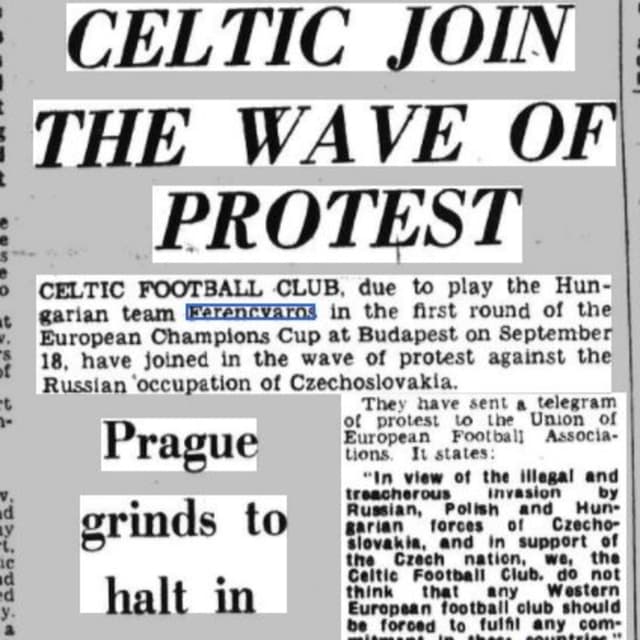
The Political History Of Celtic Football Club
The Celtic History PodcastMentioned in this episode
Episode Notes
In the modern game, Celtic Football Club can no longer be as politically outspoken as it once was. Governing bodies and sponsors dictate that, but whilst this is the case at boardroom level, many supporters of the club remain vocal in their political views and sympathies.
This episode looks at the political history of Celtic Football Club. It sticks to the facts rather than opinion, as it is not for me to say what is right or wrong. Though, I do offer a distinction between politics and humanitarianism in the opening segment.
I originally recorded this episode in May 2021, after an issue involving Palestinian flags at Celtic Park. However, I have decided to re-release the episode now, on the eve of Celtic's clash with Ferencvaros in Hungary due to the political history involving the clubs.
Celtic were formed by people of political mind. Almost all of the founders were involved in political organisations in Glasgow such as the Irish National League. One of the club's founding fathers, Pat Welsh, was a wanted Fenian who took part in an uprising for Irish independence in 1867. Another founding father, Joseph Shaughnessy, represented 10 IRB men in a legal case surrounding the blowing up of a gasometers in Glasgow. Michael Davitt was named as Celtic's second ever Patron and may have been responsible for the name 'Celtic' being given to the club. Davitt was an MP, founder of the Land Leagues, a Socialist, an Internationalist, and a convicted Irish Republican. He was invited to lay the first sod of turf at the new Celtic Park in 1892, an event at which Irish Nationalist MP Timothy Daniel Sullivan sung his anthem God Save Ireland - a tribute to the three Fenians known as the Manchester Martyrs, who were executed following a sham trial little over two decades earlier.
The club publicly protested against British involvement in the Boer War, held matches to raise funds for evicted tenants, and also sent a high profile delegation to Dublin to take part in the Irish Race Convention - designed to plan a route towards achieving Irish Home Rule - in 1896.
From those political beginnings, a friendship with Belfast Celtic hardened the supporters' political views, particularly as the situation in the North of Ireland worsened after Belfast Celtic were forced to fold.
Meanwhile, in the late 1960s, Bob Kelly refused to fulfill a European Cup tie against Hungarian opponents Ferencvaros. Kelly did so in protest against the Soviet invasions of Czechoslovakia, of which Hungary were a part. He famously said that "there are things for Celtic more important than money," and the club's stance caused a huge chain reaction across European sport.
Sit back and enjoy some of these stories and more... whatever your view on politics at Celtic Park - one can't deny the historical facts.




